
'The Earth in a gaseous state circulating in space'

'Ideal Landscape of the Silurian Period'
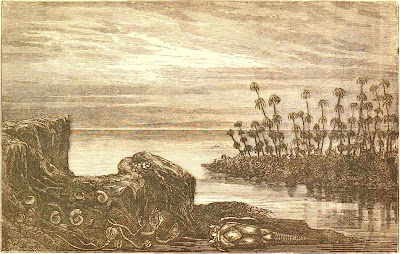
'Ideal Landscape of the Devonian Period'

'Ideal view of marine life in the Carboniferous Period'

'Ideal view of a marshy forest in the Coal Period'

'Ideal Landscape of the Permian Period'
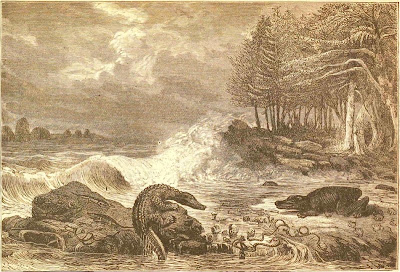
'Ideal Landscape of the Muschelkalk Period'
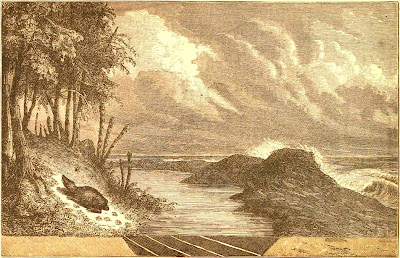
'Ideal Landscape of the Saliferous or Keuper Period'

'Ideal Scene of the Lias Period with Ichthyosaurus and Plesiosaurus'
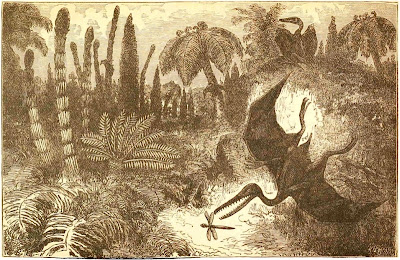
'Ideal Landscape of the Liassic Period'

'Ideal Landscape of the Lower Oolite Period'

'Ideal Landscape of the Middle Oolite Period'
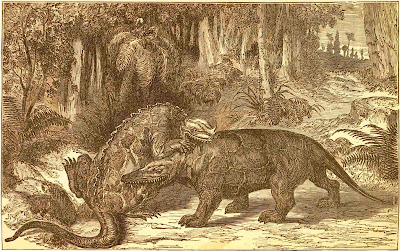
'Ideal Scene of the Lower Cretaceous Period'

'Ideal Landscape of the Cretaceous Period'

'Ideal Landscape of the Eocene Period'
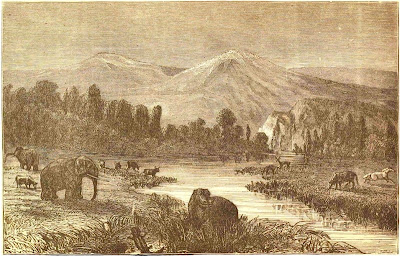
'Ideal Landscape of the Pliocene Period'

'Skeleton of the Mammoth in the St. Petersburg Museum'

'Ideal View of the Quaternary Epoch -- Europe'
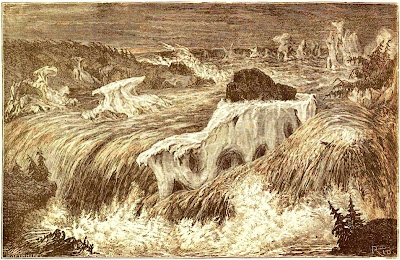
'Deluge of the North of Europe'

'Appearance of Man'
"The object of "The World before the Deluge" is to trace the progressive steps by which the earth has reached its present state, from that condition of chaos when it "was without form and void, and darkness was upon the face of the the deep," and to describe the various convulsions and transformations through which it has successively passed."
'The World Before the Deluge' by Louis Figuier (1872 revision of the 1862 text) is online at 19th century science.
****UPDATE: A full (and better quality) 1863 edition of this book has now been uploaded by Strasbourg Digital Library.
-=-=-=-=-=-=-=-=-=-
I've been more than a little busy this week. In other news...- The Library of Congress have a blog.
- Brian Sawyer (Craftzine, Makezine) has a blog - bookbinding and craft.
- The only thing I've seen at the British Library's 'Sacred' online gallery is an exquisite Ethiopian bible in the Turn the Pages section (I haven't quite worked out yet what exactly is 'new' here).
- 'Discover Islamic Art in the Mediterranean' contains >600 artefacts from 14 countries in 18 exhibition sites, assembled by 90 curators from the productive output of 1200 years. (multiple languages) For each exhibition site, click the 'more information' and any other links around to find everything available. (first appearances are a little deceptive).
- Revolutionary Players is another vast site I've hardly looked at "focusing on the history of the Industrial Revolution in the West Midlands in Britain between the years 1700 and 1830." [via]




No comments:
Post a Comment